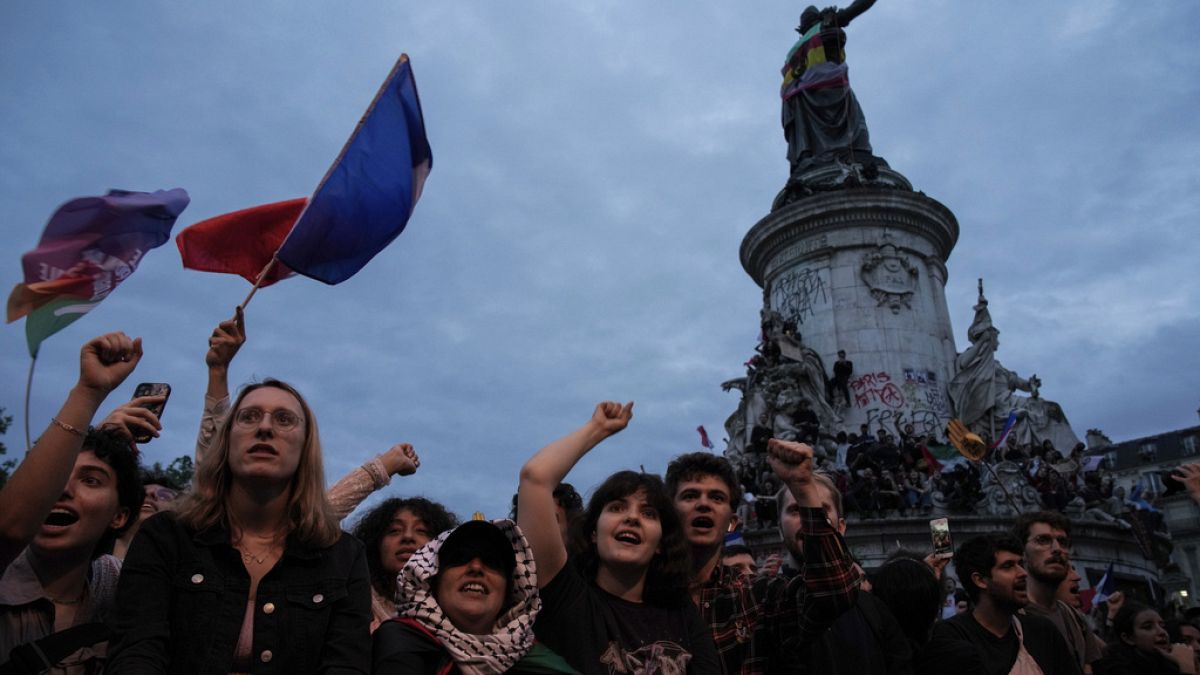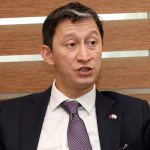A rally organized in Paris brought together unions, independent media, citizen organizations, and concerned individuals to protest the rise of the far-right National Rally party in the upcoming second round of parliamentary elections. The rally was prompted by the results of the first round of the French legislative elections, where the National Rally secured the most votes, sparking fears of curtailed civil liberties due to its history of xenophobia and antisemitism. Participants at the rally expressed concerns about the potential impact of a far-right victory on foreign students, binationals, LGBTQ people, people of color, and women. In response to the rise of the National Rally, a left-wing coalition known as the New Popular Front (NFP) and President Emmanuel Macron’s party Ensemble pledged to withdraw candidates in districts where they finished third to support other candidates opposed to the National Rally in the second round of voting. This tactic, known as the Republican Front, aims to prevent the National Rally from obtaining a majority in Parliament.
The Republican Front strategy has been successful in the past when the far-right was considered a political outlier. However, with the National Rally gaining significant support, there is concern about voter fatigue impacting turnout for the upcoming elections. While older voters with higher incomes are more likely to participate, young people, like 23-year-old content creator Alejandro, may choose to abstain from voting due to disillusionment with the political system. Despite efforts to mobilize voters to block the rise of the far-right, some individuals, such as 61-year-old Rémi, remain firm supporters of the National Rally. Rémi believes that voting for a far-right party reflects the discontent of the French populace, particularly in response to issues related to safety and immigration. He dismisses the rally in Paris as representative of only a small group of individuals, contrasting it with the sentiments of the broader French population, especially those in rural areas who may hold different political views.
The National Rally’s success in the 2024 European elections, where they won in the majority of French municipalities, underscores the party’s growing influence across the country. While left-wing candidates tend to fare better in major cities like Paris and Lyon, the National Rally’s stronghold in smaller municipalities reflects a broader trend of support for far-right ideologies. The upcoming second round of parliamentary elections presents a critical moment for French voters to decide the future direction of their country, with concerns about civil liberties, inclusivity, and immigration playing a central role in shaping political decision-making. As various groups and individuals mobilize to block the rise of the far-right, the outcome of the elections will have far-reaching implications for France’s political landscape and the values it upholds.
Overall, the rally in Paris highlighted the growing divide in French society between those who support the far-right National Rally and those who advocate for a more inclusive and progressive vision for the country. The Republican Front strategy, aimed at uniting opposition against the National Rally, faces challenges related to voter fatigue and disillusionment among younger generations. As the second round of parliamentary elections approaches, the outcome will not only determine the composition of the French Parliament but also reflect the broader ideological shifts taking place within the country. With concerns about civil liberties, immigration, and social cohesion at the forefront of the political debate, French voters are faced with a critical decision that will shape the future direction of their nation. Regardless of the outcome, the rally in Paris serves as a reminder of the importance of civic engagement and political participation in safeguarding democratic values and principles.











